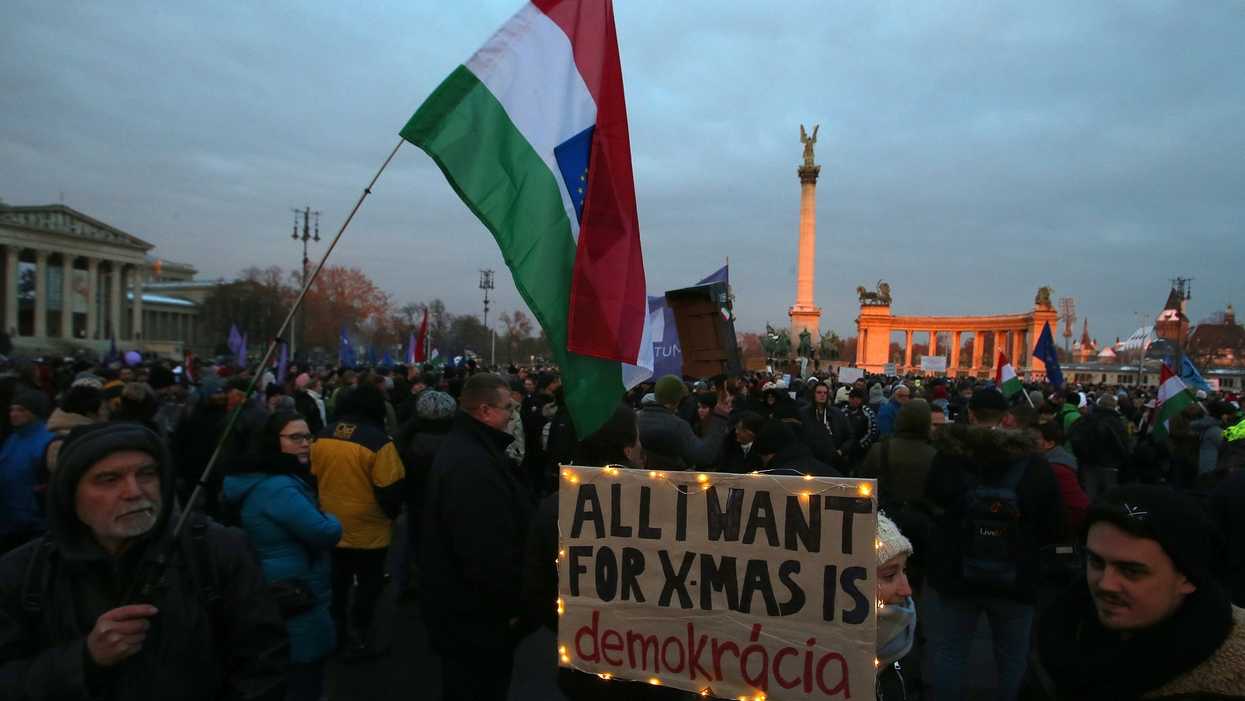
Laszlo Balogh/Getty Images

Labor unions and political activists push back against forced overtime rule
Thousands of Hungarians have taken to the streets of Budapest over the past four days, protesting new labor legislation that critics have dubbed the "slave law." Demonstrators hurled smoke grenades at police on Sunday, as labor groups and political activists push back against a new initiative passed under Prime Minister Viktor Orban.
According to local reports, a crowd of protesters that grew to more than 15,000 strong blew horns and waved trade union banners, while calling for the government to reverse a recently imposed law allowing employers to require workers to put in an extra 400 hours of paid overtime annually.
The so-called "slave law" was passed Wednesday, after a recent poll showed that 83 percent of Hungarians disapproved of the measure, the Wall Street Journal reported.
Data from 2017 show that Hungarian workers put in around 1,740 hours of work per year (33.46 hours per week), compared to the 1,780 annual hours of American laborers (34.23 hour per week). Under the new law, Hungarian employers would be able to require an additional 150 yearly hours of overtime from employees, above the 250 hours currently granted. According to the Agence France-Presse, the overtime payments are also allowed to be delayed by up to three years.
NPR reported that state-run "media loyal to the government have largely ignored the protests," while the ruling Fidesz party accused Hungarian-born U.S. billionaire George Soros of stirring up the demonstrations led by "criminals."
Party spokesman Balazs Hidveghi told the media, "From the events of the last two days it is clear that the pro-immigration Soros network is organizing the aggressive demonstrations in Budapest."
The government insists the new law is needed to make up the labor shortages in the country, while critics blame the shortage of workers on the country's crackdown on immigration, according to AFP.
Soros is no fan of Orban, but he denies being behind the unrest. The wealthy political operative founded Hungary's prominent Central European University, which has been a target under Orban's administration. Last year, Reuters reported on a "massive protest" in Budapest over legislation that could force the institution out of the country.
Prime Minister Orban previously served as Hungary's leader from 1998 to 2002, and resumed the role in 2010. He is currently serving his third consecutive term, and fourth overall.